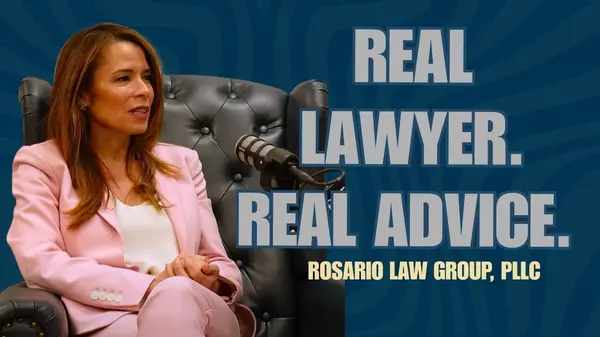Short on Cash? Explore These Alternative Financing Options for Long Island Deals

Welcome to Dream Select Realty’s guide on financing options for Long Island investors. If you’re thinking about buying property in Nassau or Suffolk County, one of your first questions might be: “How do I pay for it?” While some investors use cash, many rely on loans or other methods of financing to make their deals happen.
This article explores different ways to secure funding for real estate investments in 2025 and beyond. You’ll learn about conventional mortgages compared to investment property loans, discover local lenders who work closely with property investors, and find out about creative financing strategies that might unlock deals you never thought possible. Whether you’re a first-timer or expanding an existing portfolio, understanding these financing options can help you make the best choice for your situation.
By the end of this guide, you’ll understand the basics of conventional and investment property loans, know which local lenders might suit your needs, learn a few creative ways to finance a property, and pick up tips to avoid common pitfalls. Let’s dive in and see how you can finance your Long Island real estate goals.
Conventional Mortgages vs. Investment Property Loans
Conventional Mortgages
A conventional mortgage is the type of loan most people associate with buying a home, usually backed by Fannie Mae or Freddie Mac. While this option is common for primary residences, you can sometimes use it for investment properties under certain conditions.
Advantages of Conventional Mortgages
- Often come with lower interest rates if you have strong credit and a stable income
- Provide longer repayment periods (such as 15, 20, or 30 years), which can lower monthly payments
- Offer a familiar and straightforward application process if you already meet the lender’s income and credit standards
Disadvantages of Conventional Mortgages
- May require larger down payments (often 20-25%) for non-owner-occupied properties
- Demand high credit scores and a robust financial profile, especially for investment loans
- Enforce occupancy rules that don’t always fit the needs of full-time investors
Investment Property Loans
Investment property loans, often called non-owner-occupied loans, are tailored specifically for buying properties you intend to rent out or flip.
Advantages of Investment Property Loans
- Designed for unique investment situations, such as multi-family properties, fix-and-flip projects, or short-term rentals
- Have fewer rules about living in the property, since you won’t occupy it yourself
- May offer higher loan-to-value ratios if you find the right lender, letting you borrow more of the purchase price
Disadvantages of Investment Property Loans
- Interest rates can be higher because of the extra risk
- Loan terms might be shorter, which can mean larger monthly payments
- Require you to provide more detailed plans, such as renovation budgets and timelines, or proof of real estate experience
Choosing between a conventional mortgage or an investment property loan depends on the type of property, your credit history, and your investment plans. A single-family rental might work well with a conventional mortgage if your finances are strong. A multi-family or fix-and-flip might be better served by an investment property loan, especially if you need flexibility in how you use the funds.
Local Lenders Specializing in Investment Properties
Regional Banks and Credit Unions
Some regional banks and credit unions on Long Island have special programs aimed at investors. These lenders know the local market and can offer tailored loan products for everything from single-family rentals to multi-family buildings.
Working with these community-based institutions offers a few benefits:
- You can meet face-to-face with loan officers who understand Nassau and Suffolk neighborhoods
- Interest rates and fees can be competitive, especially if the bank wants to attract more investors
- A local lender may prioritize loan decisions that boost the local community
Hard Money Lenders
Hard money lenders are private individuals or companies that focus on real estate investments. Rather than basing loans on your personal credit, they look closely at the property’s potential value. Hard money can be a fast and flexible way to fund deals, particularly fix-and-flips.
Pros of Hard Money Loans
- Quick approval times, sometimes within days
- Less emphasis on your personal credit if the deal is strong
- Ideal for short-term projects where you plan to sell or refinance quickly
Cons of Hard Money Loans
- Higher interest rates and loan fees (points)
- Short loan terms, often 6-12 months, which can pressure you to sell or refinance soon
- Greater risk if the project runs into delays or cost overruns
Bridge Loans
Bridge loans are another short-term option, helping you “bridge” the gap between buying a new property and selling or refinancing an old one. These loans often have higher interest rates, but they can be crucial in a hot market where you need to secure a property before arranging long-term financing.
Local Mortgage Brokers
Mortgage brokers who understand the Long Island market can introduce you to lenders nationwide. They often have access to niche programs that big banks don’t publicize. Using a broker can simplify comparing different loan products, though you’ll need to factor in any broker fees.
Creative Financing Strategies for Long Island Real Estate
Seller Financing
Seller financing occurs when the seller acts like the bank, allowing you to pay for the property in installments. Instead of applying for a loan with a traditional lender, you sign a promissory note agreeing to pay the seller directly over a set period.
Benefits of Seller Financing
- Can bypass strict bank requirements
- Often allows more flexible terms on down payments, interest rates, and length of the loan
- May close faster since fewer parties are involved
Drawbacks of Seller Financing
- Sellers might set higher interest rates
- Loans often include balloon payments due after a few years
- Not all sellers are willing or able to finance you
Partnerships or Joint Ventures
If you’re short on funds or experience, consider teaming up with another investor. One partner might provide capital, while the other brings knowledge of the local market. Partnerships allow you to split costs and risks, but also require clear agreements about profit sharing and responsibilities.
Home Equity Loans or HELOCs
If you already own a property with substantial equity, you can use a home equity loan or line of credit to fund a down payment or the entire purchase of a smaller investment. These loans can offer lower interest rates than other methods, but remember that your primary residence is at risk if you can’t repay.
Private Investors and Syndication
Private investors can fund your deal in exchange for a share of the profits. Real estate syndication is a more formal way to pool funds from multiple people under an organized structure. It’s a great option if you discover a large or complex project but lack the personal capital.
Tips for Successful Financing
Aim to know your budget and objectives before you apply for a loan. Lenders prefer investors with a clear plan: the type of property, estimated repair costs, monthly rental goals, or exit strategy if you plan to flip. Improving your credit score also helps you secure better terms.
Establish relationships with professionals in the area. Local banks, brokers, attorneys, and real estate agents can all smooth out the loan process. Be prepared to offer a larger down payment for investment properties, sometimes 25% or more. If possible, run several financial scenarios (best-case, average-case, worst-case) to avoid surprises.
Keeping an emergency fund is wise. If the property remains vacant for a few months or needs a big repair, you’ll want enough savings to cover expenses until you stabilize the asset.
A knowledgeable real estate attorney can be crucial, especially for creative financing methods that involve unique clauses or agreements. They’ll help you avoid legal pitfalls and make sure every party understands their obligations.
Common Mistakes to Avoid
Failing to shop around for loans is a common error. Don’t feel locked into the first offer you get. Compare rates and fees from multiple lenders. Also, watch out for closing costs that can significantly impact your bottom line.
Some investors focus only on interest rates but forget about loan terms, such as prepayment penalties or balloon payments. Over-leveraging is another pitfall. Borrowing too much might land you in hot water if the market changes or if unexpected expenses arise.
Skipping due diligence on the property itself can be costly. Always get a proper inspection to avoid financing a home that has major structural or mechanical issues. Not locking in your interest rate or missing the deadline for your rate lock can also lead to sudden increases in monthly payments if market rates climb.
How Dream Select Realty Can Help
Dream Select Realty has deep knowledge of the Nassau and Suffolk real estate markets. We track local rents, property values, and emerging trends, then connect you with loan programs and lenders who fit your particular deal. Our team can offer preliminary property evaluations, so you’ll know the likely rental income or after-repair value before you commit.
We can also recommend local experts—from mortgage brokers to attorneys—who have a track record of success with Long Island investors. Whether you’re buying a single-family rental or planning a major renovation project, Dream Select Realty is here to guide you. Our aim is to make your investment journey smoother, from the moment you find a property to the day you close and beyond.
Conclusion
Financing is one of the biggest hurdles for Long Island real estate investors, but there are plenty of options to explore. Conventional mortgages might work well if you’re purchasing a smaller rental and have strong financials. Investment property loans may suit larger or more complex deals. Local lenders often bring personalized service, while creative approaches like seller financing or partnerships open doors when traditional methods fall short.
Success in 2025’s market involves being clear about your financial situation, building trust with lenders or partners, and understanding the local rules and opportunities. Dream Select Realty stands ready to be your ally, offering insights on how to fund your next venture in Nassau or Suffolk County. With the right financing, you’ll be closer than ever to achieving your real estate goals on Long Island.
Categories
Recent Posts










